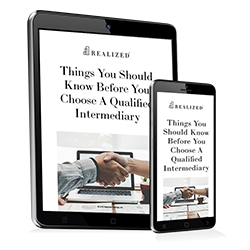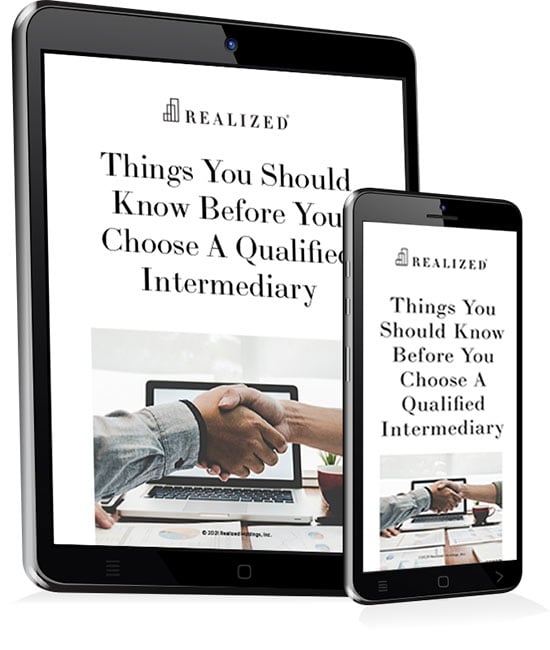Section 1031 of the Internal Revenue Code allows taxpayers to defer the recognition of capital gains tax due from the sale of investment property if they replace the asset sold with like-kind property of equal or higher value. Initially, the IRS designed the code to grant deferral to an actual exchange taking place in real time. Due to the empirical complications of swaps, delayed exchanges are more common. In these exchanges, a taxpayer sells the identified property, and an intermediary holds the proceeds realized from the sale. The intermediary then uses those funds to purchase the replacement property or properties once the taxpayer identifies the target acquisition.
The role of a Qualified Intermediary (sometimes referred to as a 1031 exchange accommodator) is important in the successful completion of a 1031 exchange. The QI must maintain the funds involved in the transaction separately from the taxpayer's accounts, and the qualified intermediary must be a neutral party. The intermediary can be a person, company, or other entity, but must not be related or married to the taxpayer.
How are Qualified Intermediaries Compensated?
Many Qualified Intermediaries operate on a fee-for-service basis to safeguard their independence. Some charge an administrative fee to establish the sale proceeds account and assess document preparation charges individually. Others may retain the interest accrued from the funds they hold on behalf of the taxpayer, which can be quite lucrative. A Qualified Intermediary may do both, depending on their agreement with the taxpayer, which they must complete in advance. If the QI agreement is not in place before the taxpayer sells the relinquished property, it is unlikely that the taxpayer will succeed in deferring the tax. A CPA or legal firm may perform QI services on behalf of taxpayers for whom it does not provide its core services because it is not the agent of that taxpayer. The service firms trade referrals with other service firms while then referring clients in return. That way, no one is the agent and the Qualified Intermediary for the same taxpayer.
How do you become a Qualified Intermediary?
There is no licensing, certification, or other formal eligibility for intermediaries. The IRC disqualifies people who have acted as agents of the taxpayer and those who are related. "Agents" include accountants, attorneys, and realtors who have worked on behalf of the taxpayer in the last two years—they may not serve as a qualified intermediary for an exchange.
While there are no official experience standards for an intermediary, that person holds a crucial role in the exchange's success. The QI will:
- Coordinate with the taxpayer on the 1031 exchange structure.
- Prepare and maintain relevant documents.
- Provide escrow instructions for all involved transactions.
- Create an arms-length transaction between the taxpayer and the buyer and sellers.
- Transfer the property to the QI, then to the buyer.
- Take control of sale proceeds and create a separate account, preventing the funds from coming under the seller/taxpayer's constructive custody.
- Hold the funds during the identification period.
- Receive the written information about replacement properties.
- Acquire replacement property or properties and transfer title to the taxpayer.
- Create a thorough accounting of the transaction.
While QIs are not licensed or regulated, there is a trade association called the Federation of Exchange Accommodators that supports high-quality standards in the industry and advocates for exchange facilitators. The FEA provides leadership for practitioners and education for consumers seeking QI services.




